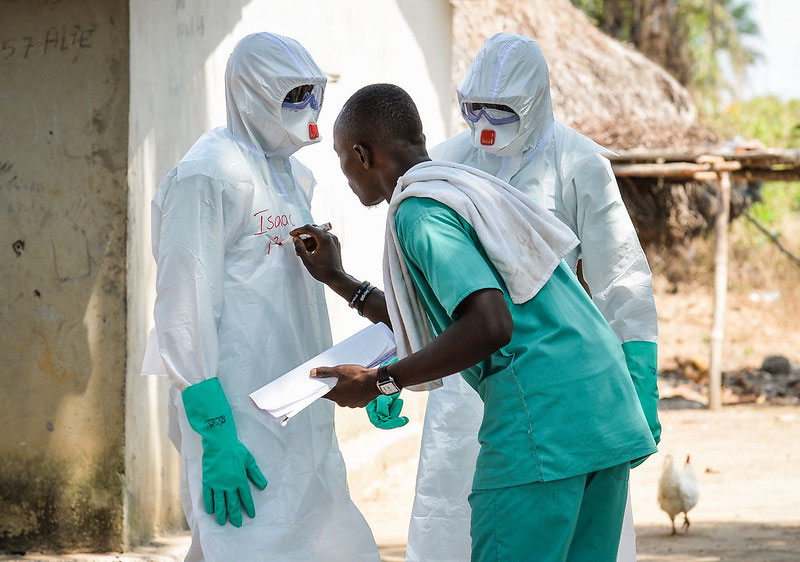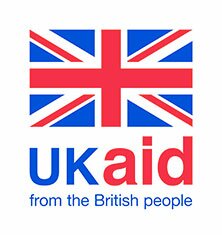Infectious diseases have been one of the largest causes of human death throughout history. Despite this fact, and despite the numerous studies on epidemic preparedness, response and recovery, and all the scientific warnings of a global pandemic involving a respiratory disease, global health systems, governments and people across the world were completely blindsided by COVID-19.
Rapid literature reviews
In order to design programmes of support for low and middle-income countries facing the COVID-19 pandemic, Maintains commissioned seven rapid literature reviews that look at how previous health shocks such as Ebola, SARS and Zika have impacted different elements of public health service delivery; identify lessons and best practices; and synthesise the emerging evidence to outline potential means to engage with the manifold impacts of COVID-19.
The health sector rapid literature review, while drawing on learnings from past disease outbreaks particularly Ebola in West Africa, focuses on COVID-19’s impact on health services, recovery measures, and potential reform policies. This blog summarises three key insights from the review.
Impact on women
The impact of an epidemic on sexual and reproductive health often goes unrecognised but has far-reaching and disastrous consequences. At least have already died in Uganda due to their inability to reach health facilities during lockdown to give birth. Literature from the Ebola outbreak and data already emerging from COVID-19, provides evidence of the gendered response actions that divert funding and essential services away from reproductive, maternal, and infant care activities. During the Ebola outbreak, significantly due to closed health facilities, fear of catching the disease and a loss in health worker numbers following health worker mortality and morbidity. saw an increase in adolescent pregnancies due to closure of schools following the outbreak and the disruption in reproductive health services left these girls more vulnerable to complications. The break in delivery of reproductive and child healthcare services led to lower respect of and trust in community health workers across West Africa. More than often, the majority of the health workforce were women and rules of distancing and isolation, in addition to care responsibilities for affected family members, added a further strain on their diminished numbers. The review also highlights the in crisis situations that can be attributed to close living conditions, stress, unemployment, and poor coping strategies.
Significance of trust
Studies that were conducted in the aftermath of the Ebola outbreak, specified the importance of ‘’ such as trust of the population in health services and service providers as a precondition for health system resilience during a health crisis. Distrust in the government manifested itself among health workers in West Africa who were neither supervised efficiently nor provided with protective gear or sufficient reimbursements. Distrust in health providers by communities led to stigmatisation of health workers, inadequate reporting of the disease, and fear of Western medicine, all reasons that contributed to the uncontained spread of the disease. Some communities in Liberia resisted surveillance and disease control efforts believing Ebola was purposely introduced by the government and foreign institutions to gain profits from emergency response activities. COVID-19 is already seeing cases of stigmatisation of certain ethnic groups and distrust in government interventions and safety measures due to lack of awareness and lack of adaptable solutions. Successful ‘build back better’ policies stress the importance of building confidence in health services and government health care among vulnerable populations, restoring community resilience by involving the community as part of the solution, and not seeing them as a problem.
Everyday resilience
Literature on reform measures in the aftermath of a health crisis is interspersed with learnings for health system resilience to ensure preparedness and the ability of a country and its health systems to withstand a future crisis. The review sees COVID-19 as an opportunity to build health system resilience in the future. The global literature emphasises the significance of ‘slow variables’ such as the role played by the public and private sectors and good governance in building planned, adaptive, and ‘ in health systems. Reform measures adopted by national governments along with international support should include a number of key elements: a skilled, well-distributed, and committed workforce; decentralised government service provision to incorporate private, non-government, and community participants; investment in surveillance infrastructure and knowledge sharing; universal health care; and a global focus on a planetary approach that protects the well-being of the ecosystem along with the human species that occupies it. Such an approach will not only help prevent another health shock, but will improve the ability to withstand it if need be.
The full rapid literature review can be found here. A separate but associated review that builds on the importance of and impact on community health workers within the health system during such a crisis can be accessed here.
All Maintains evidence and articles relating to COVID-19 can be found here.
About Maintains
Maintains aims to save lives and reduce suffering for people in developing countries affected by shocks such as pandemics, floods, droughts, and population displacement. This five-year programme, spanning 2018–2023, is building a strong evidence base on how health, education, nutrition, and social protection systems can respond more quickly, reliably, and effectively to changing needs during and after shocks, whilst also maintaining existing services. With evidence gathered from six focal countries – Bangladesh, Ethiopia, Kenya, Pakistan, Sierra Leone, and Uganda – Maintains is working to inform policy and practice globally. It also provides technical assistance to support practical implementation.
This output has been funded by UK aid from the UK government; however, the views expressed do not necessarily reflect the UK government’s official policies. Maintains is implemented through a consortium led by Oxford Policy Management www.opml.co.uk.



